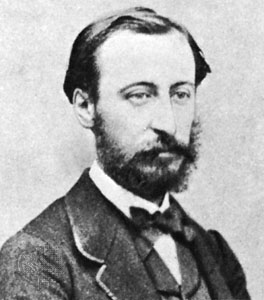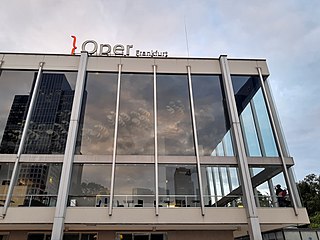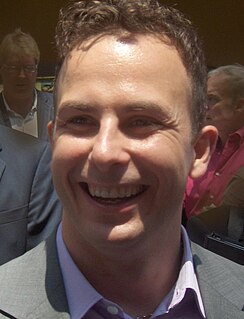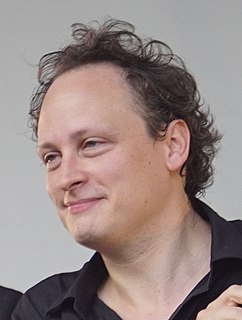The Gramophone Classical Music Awards, launched in 1977, are one of the most significant honours bestowed on recordings in the classical record industry. They are often viewed as equivalent to or surpassing the American Grammy award, and referred to as the Oscars for classical music. They are widely regarded as the most influential and prestigious classical music awards in the world. According to Matthew Owen, national sales manager for Harmonia Mundi USA, "ultimately it is the classical award, especially worldwide."

The Piano Concerto No. 2 in G minor, Op. 22 by Camille Saint-Saëns was composed in 1868 and is probably Saint-Saëns' most popular piano concerto. It was dedicated to Madame A. de Villers. At the première on 13 May the composer was the soloist and Anton Rubinstein conducted the orchestra. Saint-Saëns wrote the concerto in three weeks and had very little time to prepare for the première; consequently, the piece was not initially successful. The capricious changes in style provoked Zygmunt Stojowski to quip that it "begins with Bach and ends with Offenbach."

Kent George Nagano, GOQ, MSM is an American conductor and opera administrator. Since 2015, he has been Music Director of the Hamburg State Opera and was Music Director of the Montreal Symphony Orchestra from 2006 to 2020.
The Juno Award for "Classical Album of the Year" for ensembles has been awarded since 1985, as recognition each year for the best classical music album in Canada.

The Oper Frankfurt is one of the leading opera companies in Europe, and voted best "Opera house of the year" several times since 1996, including 2020. Opera in Frankfurt am Main has a long tradition, with many world premieres such as Franz Schreker's Der ferne Klang in 1912, Fennimore und Gerda by Frederick Delius in 1919, and Carl Orff's Carmina Burana in 1937. Frankfurt's international recognition began in the Gielen Era, 1977 to 1987, when Michael Gielen and stage directors such as Ruth Berghaus collaborated.

Manuel Rosenthal was a French composer and conductor who held leading positions with musical organizations in France and America. He was friends with many contemporary composers, and despite a considerable list of compositions is mostly remembered for having orchestrated the popular ballet score Gaîté Parisienne from piano scores of Offenbach operettas, and for his recordings as a conductor.

Jean Fournet was a French flutist and conductor.

Yannick Nézet-Séguin, CC is a Canadian (Québécois) conductor and pianist. He is currently music director of the Orchestre Métropolitain (Montréal), the Metropolitan Opera, and the Philadelphia Orchestra. He was also principal conductor of the Rotterdam Philharmonic Orchestra from 2008 to 2018.
Andrew von Oeyen is an American concert pianist.
Alsatian conductor Charles Munch was one of the most widely recorded symphonic conductors of the twentieth century. Here is a partial list of his recordings.

The Pasdeloup Orchestra is the oldest symphony orchestra in France.

François-Xavier Roth is a French conductor, who founded Les Siècles, an orchestra which performs on instruments appropriate to the period of composition of each piece, from late Baroque and Classical to 20th century music.
Jonathan Philip Darlington is a British conductor, Music Director Emeritus of the Vancouver Opera and the former Music Director of the Duisburg Philharmonic Orchestra. He is known for his broad repertoire of both opera and symphonic music and appears regularly with major orchestras and opera houses, most notably the Paris Opera, Vienna State Opera, Frankfurt Oper, Orchestre National de France, Prague Radio Symphony Orchestra, the Swedish Chamber Orchestra, Orchestra Sinfonica del San Carlo di Napoli, the Orchestre Philharmonique de Strasbourg, the National Orchestra of Taiwan, the BBC Symphony Orchestra, English National Opera and Opera Australia.

The Malmö Symphony Orchestra is a Swedish orchestra, based in Malmö. Since 2015, it has been resident at the Malmö Live Concert Hall. The orchestra has a complement of 94 musicians.
The Belgian-born French conductor André Cluytens (1905–1967) was a prolific recording artist. His recording career ran from May 1943 to December 1965. Many of Cluytens recordings have since been re-issued.
The International Classical Music Awards (ICMA) are music awards first awarded 6 April 2011. ICMA replace the Cannes Classical Awards formerly awarded at MIDEM. The jury consists of music critics of magazines Andante, Crescendo, Fono Forum, Gramofon, Kultura, Musica, Musik & Theater, Opera, Pizzicato, Rondo Classic, Scherzo, with radio stations MDR Kultur (Germany), Orpheus Radio 99.2FM (Russia), Radio 100,7 (Luxembourg), the International Music and Media Centre (IMZ) (Austria), website Resmusica.com (France) and radio Classic (Finland).
Laurent Petitgirard is a French classical composer and conductor.

Romain Descharmes is a French classical pianist.
Gustave Cloëz was a French conductor who was particularly active at the Paris Opéra-Comique in the mid-20th century, and made a significant number of recordings, often accompanying major singers of the time.

La Damoiselle élue, L. 62, is a cantata for soprano soloist, 2-part children's choir, 2-part female (contralto) choir, and orchestra, composed by Claude Debussy in 1887–1888 based on a text by Dante Gabriel Rossetti. It premiered in Paris in 1893.











